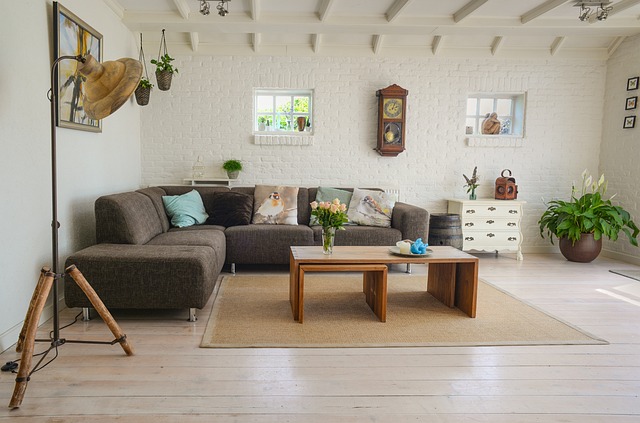Crafting a comfortable college living space requires balancing privacy and social interaction. Consider study habits, personal space needs, and desired social activities to ensure an environment supportive of academic success and meaningful connections. Strategically plan with budget-friendly furniture, natural light, and décor to maximize space efficiency. Location is key; strike a chord between vibrant areas for social scenes and quieter zones for solitude. In shared housing, establish clear boundaries with room dividers or strategic furniture placement. Communicate openly with roommates and leverage technology for enhanced privacy. Find like-minded individuals sharing similar interests to create a sense of belonging while maintaining comfortable living spaces.
“Navigating college life is an exciting yet challenging journey, especially when it comes to creating a comfortable living environment. This comprehensive guide aims to empower students with the knowledge and tools to balance their social life and maintain privacy in shared spaces. From understanding individual needs to practical living tips, we explore ways to enhance your overall college experience. Discover affordable strategies for crafting inviting living spaces, optimal accommodation choices, and essential advice on fostering a healthy social balance while thriving academically.”
- Understanding Your Needs: Privacy and Social Balance in College
- Creating Comfortable Living Spaces on a Student Budget
- The Role of Location: Choosing Accommodation for Optimal Student Life
- Tips for Maintaining Privacy in Shared Student Housing
- Fostering a Healthy Social Life: Navigating College Connections
- Practical Living Tips for Students: Enhancing Your College Experience
Understanding Your Needs: Privacy and Social Balance in College

Moving to college is an exciting time, but it can also be a bit daunting when considering how to create a comfortable living environment while balancing your need for privacy and social interaction. Understanding your personal preferences for each is key to making informed decisions about student housing and participating in campus life.
For many students, finding the right balance between privacy and social engagement is essential for overall well-being on campus. While some thrive in bustling dormitories with communal spaces, others may prefer quieter apartments or suites that offer more seclusion. It’s important to consider your study habits, personal space requirements, and preferred social activities when exploring student living tips. Remember, a comfortable living environment supports academic success and enhances your overall college experience.
Creating Comfortable Living Spaces on a Student Budget

Creating comfortable living spaces on a student budget can be a challenge, but with some creative thinking and strategic planning, it’s entirely achievable. Balancing privacy and social life is key for students. To establish a cozy environment, prioritize essential amenities like adequate lighting, functional furniture, and storage solutions to maximize space efficiently. Curating a personal space that feels like home doesn’t have to break the bank; focus on affordable décor such as throw blankets, houseplants, or low-cost art pieces to add personality.
Consider exploring second-hand stores or online marketplaces for furnished items, which can significantly reduce costs while still providing comfort and style. Additionally, leveraging natural light through strategic window treatments or introducing warm lighting fixtures creates a welcoming ambiance. Remember, comfortable living spaces cater to both solitude and social interactions, allowing students to recharge individually while also fostering meaningful connections within their shared living areas. These thoughtful adjustments will help students create a balance between privacy and engaging in the vibrant college social life.
The Role of Location: Choosing Accommodation for Optimal Student Life

When it comes to creating a comfortable living environment for students, location plays a pivotal role in balancing privacy and accessibility. For those seeking optimal student life, choosing accommodation that strikes the right chord between personal space and social engagement is essential.
Consider the vibe of the neighborhood; bustling student areas often mean quick access to campus and a vibrant social scene, while quieter residential zones offer more privacy. Ideally, look for housing that allows easy navigation to academic buildings, study spaces, and social hubs. Student living tips include prioritizing proximity to amenities like supermarkets and public transport, ensuring convenience without compromising on privacy student housing.
Tips for Maintaining Privacy in Shared Student Housing

Maintaining a sense of privacy in shared student housing can be a delicate balance, especially when navigating college’s vibrant social scene. To create a comfortable living space, students should consider implementing simple yet effective strategies. One approach is to establish clear boundaries within shared areas by utilizing room dividers or strategically placing furniture to create designated zones for study and relaxation. Respectful communication with roommates is key; open dialogue ensures everyone understands the importance of personal space and quiet time.
Additionally, leveraging available technology can enhance privacy. This might include using noise-canceling headphones during study sessions, installing privacy curtains, or utilizing door locks to create a sanctuary within shared rooms. Balancing social life and privacy is an art, but with thoughtful adjustments, students can enjoy both the camaraderie of college housing and the peace of mind that comes from having a comfortable, private space to call their own.
Fostering a Healthy Social Life: Navigating College Connections

Navigating a new city and adapting to college life can be overwhelming, especially when it comes to establishing a healthy social life while maintaining a comfortable living environment. Balancing privacy and interaction is key for students looking to make the most of their college experience.
Creating a sense of belonging starts with finding like-minded individuals who share similar interests. Student housing options that prioritize privacy, such as suites or apartments with individual rooms, can provide a much-needed sanctuary amidst the hustle and bustle of campus life. This balance allows students to recharge and rejuvenate before engaging in social activities, ensuring they’re present and fully immersed in their connections.
Practical Living Tips for Students: Enhancing Your College Experience

Creating a comfortable living environment as a student is essential for enhancing your overall college experience. One key aspect is balancing privacy and social interaction. Your dorm room or off-campus apartment should offer a sanctuary where you can study, relax, and unwind from the hustle and bustle of student life. Invest in good quality furniture, ensure adequate storage space, and consider adding personal touches like plants or artwork to make it feel like home.
Practical student living tips include establishing a cleaning routine to keep your space tidy, utilizing noise-canceling headphones or eye masks for study sessions, and setting boundaries with roommates to maintain a peaceful environment. Engage in campus activities and join clubs to build a strong student social life, but also carve out time for yourself. Finding the right balance between socializing and personal time will contribute significantly to your overall well-being and academic success.






